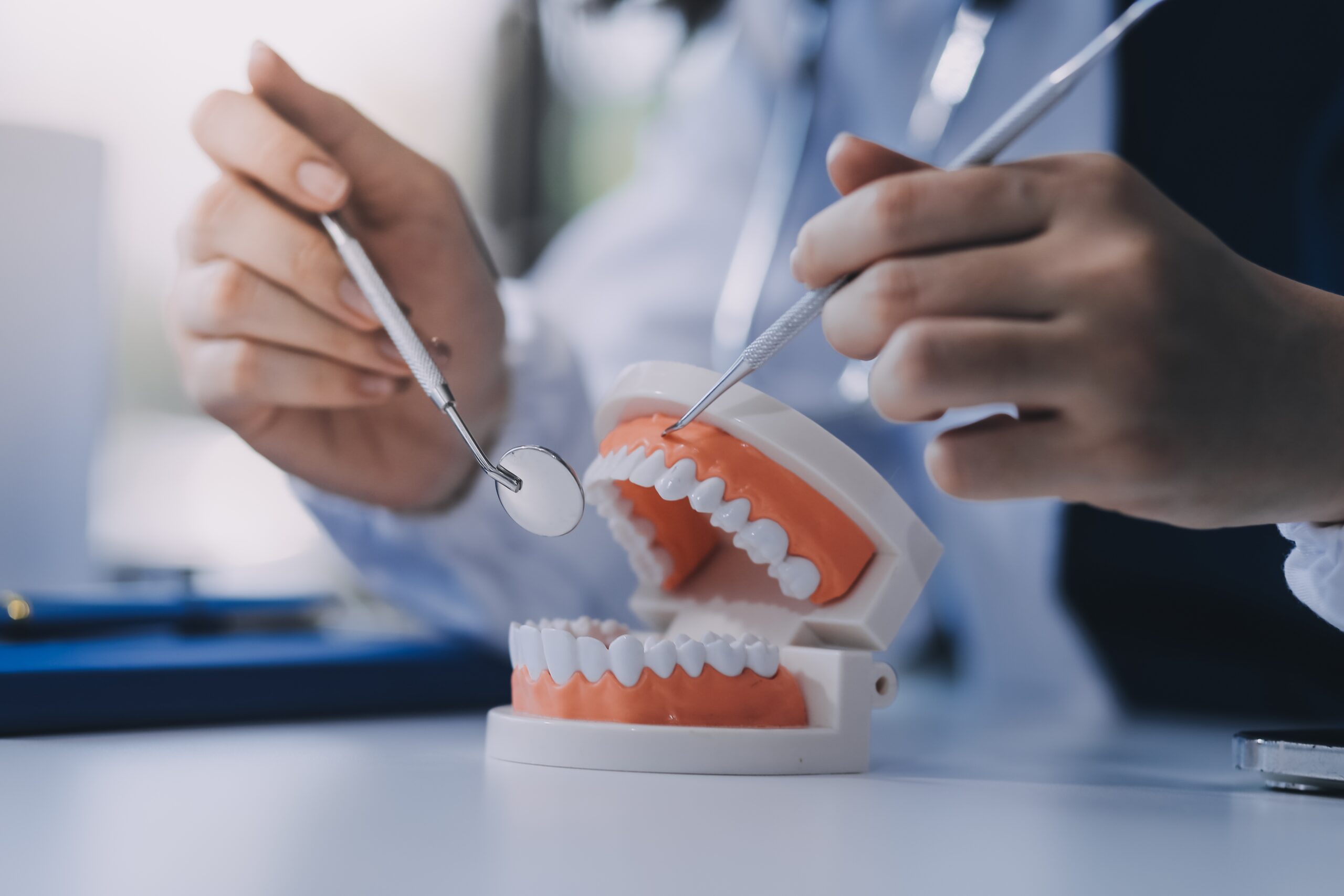Understanding Senior Dental Plans
Senior dental plans are designed specifically to address the unique oral health needs of adults aged 65 and older. Unlike traditional medical insurance, dental coverage for seniors typically focuses on reducing out-of-pocket costs for routine and emergency dental services. These plans can be crucial for maintaining oral health during retirement years when fixed incomes may make dental expenses challenging to manage.

Many senior dental plans offer coverage for preventive care, basic procedures, and major treatments like dentures. The structure of these plans varies, with some operating as traditional insurance and others functioning as discount programs or membership clubs. Understanding these differences is essential for making an informed decision about your dental coverage.
When comparing senior dental plans, it’s important to consider monthly premiums, annual maximums, and network restrictions. Some plans may offer lower premiums but have higher out-of-pocket costs, while others might have higher monthly fees but more comprehensive coverage.
The Importance of Dental Care for Seniors
Dental health becomes increasingly important as we age. Research shows that oral health is directly linked to overall physical wellbeing, with poor dental care potentially contributing to serious conditions like heart disease, diabetes complications, and respiratory infections. For seniors, maintaining good oral health isn’t just about having a nice smile—it’s about preserving quality of life and preventing serious health issues.
Regular dental visits can help detect early signs of problems like oral cancer, which has a much higher incidence rate among older adults. Additionally, proper dental care helps seniors maintain the ability to eat nutritious foods, which is essential for overall health and can prevent malnutrition issues common in older populations.
Dental insurance for seniors becomes increasingly important as oral health issues tend to increase with age. Without adequate coverage, many seniors postpone necessary dental care due to cost concerns, which can lead to more serious and expensive problems down the road.
Common Dental Issues Seniors Face
Seniors often encounter specific dental challenges that younger adults may not experience as frequently:
- Dry Mouth: Many medications commonly prescribed to seniors can cause reduced saliva production, leading to dry mouth. This condition increases the risk of tooth decay and gum disease.
- Root Decay: As gums recede with age, the roots of teeth become exposed and vulnerable to decay, especially without proper dental care.
- Gum Disease: Periodontal disease is more common in older adults and can lead to tooth loss if left untreated.
- Tooth Loss: Years of wear, decay, and gum disease can result in missing teeth, affecting both appearance and the ability to eat properly.
- Denture-Related Issues: Many seniors use full or partial dentures, which require special care and occasional adjustment or replacement.
- Oral Cancer: The risk of oral cancer increases significantly with age, making regular dental screenings crucial.
These issues highlight why specialized dental plans for seniors are so important. The right coverage can help address these age-specific concerns through regular preventive care and coverage for treatments like dentures, implants, and periodontal services.
Types of Dental Plans for Seniors
Understanding dental plans for seniors requires knowing the different types available, each with its own structure, benefits, and limitations:
1. Dental HMO Plans (DHMO)
DHMO plans typically have lower premiums and no annual maximums. With these plans, you must choose a primary dentist from within the network and get referrals for specialist care. While they offer predictable costs through a copayment structure, the restricted network can be limiting for some seniors.
2. Dental PPO Plans (DPPO)
DPPO plans offer more flexibility by allowing you to see both in-network and out-of-network dentists, though staying in-network provides greater savings. These plans usually have higher premiums than DHMOs but offer more provider choices. The best senior dental plans in the PPO category typically balance network size with reasonable costs.
3. Dental Indemnity Plans
These traditional fee-for-service plans offer the most freedom, allowing you to visit any dentist without network restrictions. The insurance company pays a percentage of your costs after you meet your deductible. While they offer maximum flexibility, indemnity plans often come with higher premiums.
4. Dental Discount Plans
These are not insurance but membership programs that provide discounts on dental services from participating providers. Senior dental discount plans can save 10-60% on procedures but require paying the discounted rate at the time of service. They typically have low monthly fees and no annual maximums or waiting periods.
5. Senior Dental and Vision Plans
Combined senior dental and vision plans often provide cost savings compared to purchasing separate policies. These bundled packages address two common senior healthcare needs in one plan, often with simplified administration and billing.
What Does Senior Dental Insurance Cover?
Most senior dental insurance plans include coverage organized into three main categories:
Preventive Care (Usually 100% Covered)
- Regular dental exams (typically twice yearly)
- Professional cleanings
- Routine X-rays
- Fluoride treatments
Basic Procedures (Typically 70-80% Covered)
- Fillings
- Simple extractions
- Emergency pain treatment
- Dental repairs
- Non-surgical periodontal treatment
Major Procedures (Usually 50% Covered)
- Dentures and denture repairs
- Bridges
- Crowns
- Root canals
- Oral surgery
- Implants (covered by some, but not all plans)
- Inlays and onlays
When evaluating dental insurance for seniors, look for plans that cover the services you’re most likely to need. For example, if you already have dentures or might need them soon, ensure your plan provides adequate coverage for denture-related services.
Senior Dental Plans with No Waiting Period
Many dental insurance policies impose waiting periods before covering certain procedures, particularly for major work like dentures or crowns. These waiting periods can range from 3-12 months, which can be problematic if you need immediate dental care.
Senior dental plans with no waiting period allow you to receive coverage for procedures immediately after enrollment. These plans are particularly valuable for seniors who:
- Have delayed dental care due to lack of insurance
- Are experiencing current dental problems requiring prompt attention
- Recently lost dental coverage and don’t want to wait for new benefits
If you need immediate dental work, senior dental plans with no waiting period may be worth the higher premium they sometimes carry. Companies like Delta Dental, Humana, and Spirit Dental offer options with reduced or no waiting periods for many services.
Costs of Senior Dental Plans
Understanding the cost structure of dental plans helps seniors budget appropriately for this important healthcare need:
Premium Costs
Affordable dental plans for seniors typically range from $20 to $50 per month depending on coverage levels. More comprehensive plans with lower deductibles and higher annual maximums may cost $40-$80 monthly.
Deductibles
Most plans require an annual deductible (typically $50-$150) before coverage begins for basic and major services. Some plans waive deductibles for preventive care.
Annual Maximums
Senior dental plan benefits usually cap at an annual maximum—commonly between $1,000 and $2,000. Once you reach this limit, you’ll pay out-of-pocket for additional services until the next plan year.
Copayments and Coinsurance
After meeting your deductible, you’ll typically pay a percentage of costs (coinsurance) or a fixed amount (copayment) for covered services. The percentage varies by service category, with preventive care often covered at 100%, basic services at 70-80%, and major procedures at 50%.
When comparing senior dental plan costs, look beyond just the monthly premium. A plan with slightly higher premiums but better coverage for the services you need might save you money overall.
How to Choose the Right Senior Dental Plan
Finding the best senior dental plans requires careful consideration of several factors:
Assess Your Dental Needs
Consider your current oral health, existing dental work, and anticipated needs. If you have healthy teeth and just need preventive care, a basic plan might suffice. If you anticipate needing major work like crowns or dentures, look for more comprehensive coverage.
Evaluate Provider Networks
Check if your current dentist participates in the plan’s network. If staying with your dentist is important, prioritize plans they accept or consider a PPO or indemnity plan that offers out-of-network benefits.
Compare Coverage Details
Look closely at what each plan covers and at what percentage. Pay special attention to coverage for services you’re likely to need, such as dentures, implants, or periodontal treatments.
Consider Waiting Periods
If you need immediate dental work, prioritize senior dental plans with no waiting period, even if they cost slightly more.
Review Annual Maximums
If you anticipate needing extensive dental work, look for plans with higher annual maximums to avoid exceeding your coverage limits.
Check for Pre-existing Condition Clauses
Some plans exclude or limit coverage for pre-existing conditions or replacement of already missing teeth. Understand these limitations before enrolling.
Look for Senior-Specific Benefits
The best senior dental plans often include extra benefits tailored to older adults, such as enhanced coverage for dentures, implants, or gum disease treatment.
Popular Providers of Senior Dental Plans
Several insurance companies specialize in dental coverage for older adults:
Delta Dental Senior Plans
Delta Dental senior plans are among the most widely accepted, with the largest network of dentists nationwide. They offer various plan options designed specifically for seniors, including PPO and HMO plans with different coverage levels and price points.
AARP Dental Insurance
Endorsed by AARP and insured by Delta Dental, these plans cater specifically to seniors with benefits designed for older adults. AARP members may receive discounted rates on these plans.
Humana Dental
Humana offers several senior dental plans, including options that can be paired with their Medicare Advantage plans. They provide various coverage levels and some plans with no waiting periods for preventive and basic services.
Cigna Dental
Cigna dental plans for seniors include both insurance and discount plan options. Their plans often feature no age limits and guaranteed acceptance, making them accessible for all seniors.
Anthem Dental
Anthem offers dental plans that can be purchased as standalone coverage or bundled with other insurance products. They provide various coverage levels to suit different needs and budgets.
When exploring these providers, compare not just premiums but network size, coverage details, and customer satisfaction ratings to find the best fit for your needs.
Medicare and Dental Coverage
Many seniors are surprised to learn that Original Medicare (Parts A and B) does not cover most routine dental care. Medicare dental plans for seniors are limited, as Original Medicare doesn’t cover procedures like cleanings, fillings, tooth extractions, dentures, or dental plates.
There are a few exceptions where Medicare might cover dental services:
- Dental care that’s an integral part of another covered procedure (such as jaw reconstruction following an injury)
- Extractions needed to prepare for radiation treatment
- Oral exams (but not treatment) preceding kidney transplant or heart valve replacement
For comprehensive dental coverage, seniors on Medicare have several options:
- Medicare Advantage (Part C)plans often include some dental benefits, though coverage varies widely between plans
- Standalone dental insurancepolicies designed to complement Medicare
- Dental discount plansas an alternative to traditional insurance
- Medicaidfor those who qualify, which may cover some dental services depending on the state
When considering Medicare and dental needs, carefully review what’s covered and what isn’t to avoid unexpected out-of-pocket expenses.
Frequently Asked Questions
Is dental insurance worth it for seniors?
Yes, dental insurance is typically worth it for seniors who need regular dental care. Even basic preventive care like cleanings and exams can cost $200-$300 annually without insurance. For seniors who need more extensive work like crowns, dentures, or periodontal treatment, insurance can provide significant savings.
How much do senior dental plans typically cost?
Monthly premiums for senior dental plans generally range from $20-$80 depending on the coverage level, with an average around $40 per month for comprehensive coverage.
Can I keep my current dentist with a senior dental plan?
It depends on the type of plan. PPO and indemnity plans offer the most flexibility in choosing providers, while HMO plans restrict you to in-network dentists. Always check if your preferred dentist participates in the plan’s network before enrolling.
Do senior dental plans cover dentures?
Most comprehensive senior dental plans cover dentures, typically at around 50% after you’ve satisfied any waiting periods. However, coverage details vary by plan, so check the specific benefits for dentures, including any frequency limitations for replacements.
What’s the difference between dental insurance and a dental discount plan?
Dental insurance involves paying premiums for coverage that helps pay for dental services, usually with deductibles, copays, and annual maximums. Dental discount plans are membership programs where you pay an annual fee to access discounted rates on dental services, paying the reduced rate directly to the dentist at the time of service.
Maintaining good oral health is an essential part of overall wellness for seniors. With the right senior dental plan, you can access necessary care while managing costs effectively. Take time to compare options, understand coverage details, and choose a plan that best fits your specific dental needs and budget. Remember that investing in preventive dental care now can help avoid more costly and complex procedures in the future.








